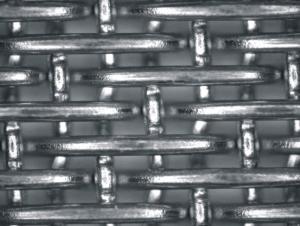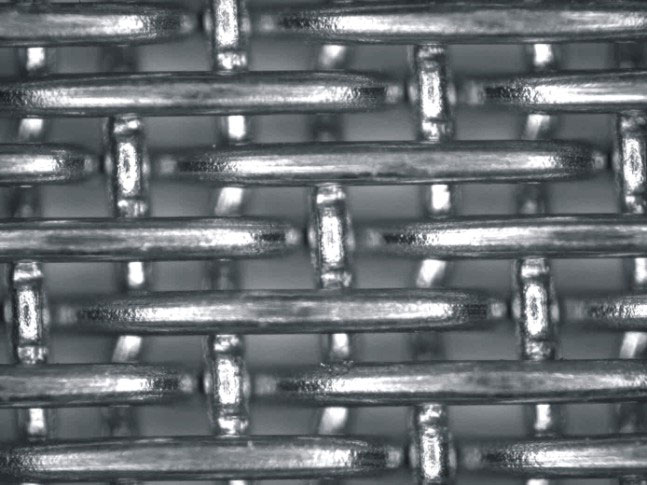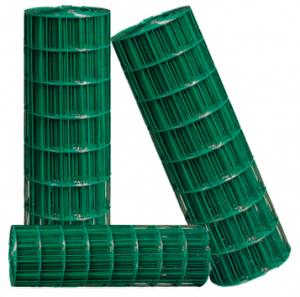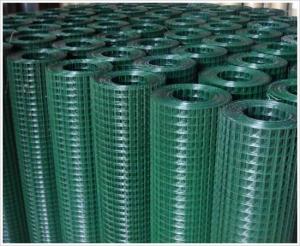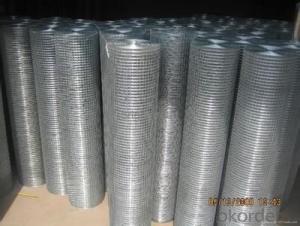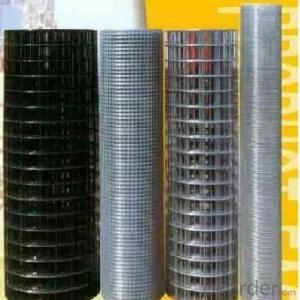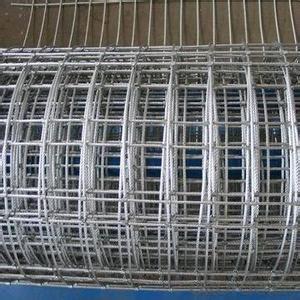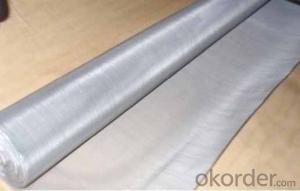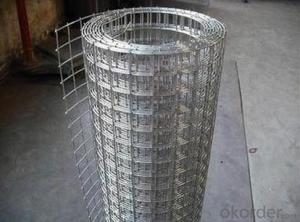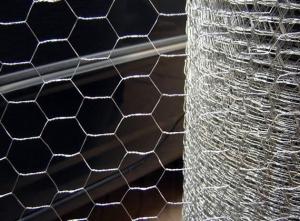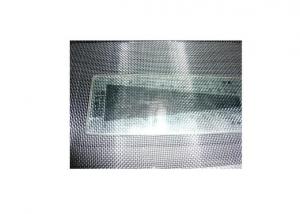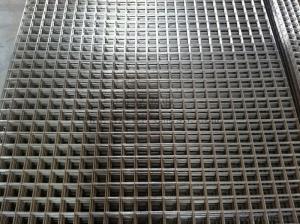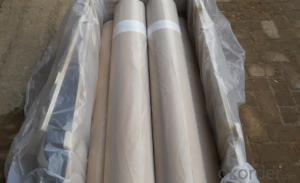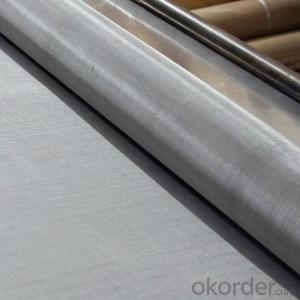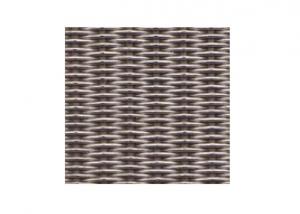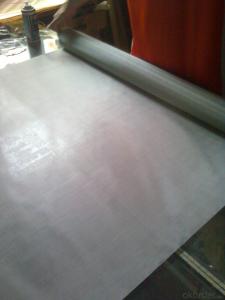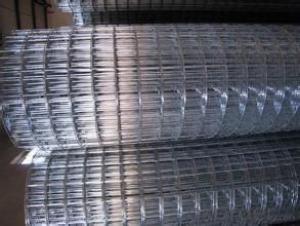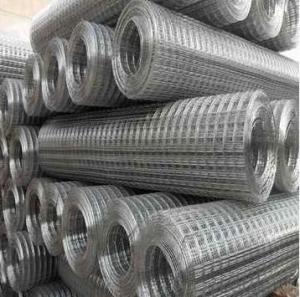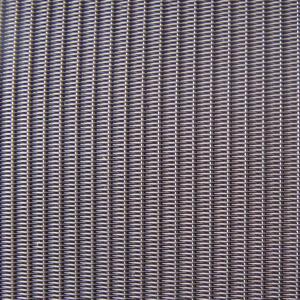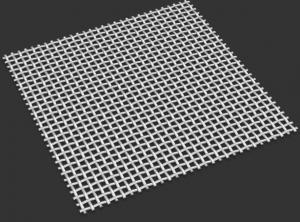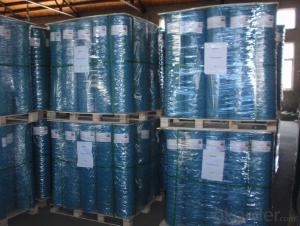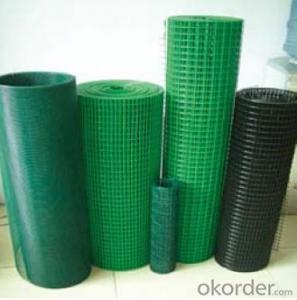Stainless Steel Five Heddle Mesh
- Loading Port:
- Tianjin
- Payment Terms:
- TT OR LC
- Min Order Qty:
- -
- Supply Capability:
- 500 m²/month
OKorder Service Pledge
OKorder Financial Service
You Might Also Like
Five Heddle Weave Wire Cloth providesa rectangular opening. The unique design of this mesh can assist increaseddrainage and flow properties. This mesh also has a smooth surface on one side.
Material: Stainless steel wire SUS304,SUS304L, SUS316 or SUS316L.
Standard width of stainless steel wire mesh: 1m or48". Standard roll length of stainless steel wire mesh: 30m or100'.
Packing: wrapped with moister-proofpaper, then in wooden cases.
Typical Use: Industrial woven wirecloth is used in filtration of petroleum chemical industries, in the form offilter ribbons or filter elements.
Meshes | Mesh | Filter | Filter | Water Permeability | Air Permeability |
107x60 | .0177/.45 | 0.077 | .16-.18 | 16.6 | 7620 |
78x58 | .0213/.54 | 0.127 | .18-.22 | 17.6 | 7970 |
63x33 | .0331/.84 | 0.1 | .26-.29 | 16.6 | 7070 |
23.3x19.4 | .0669/1.7 | 0.49 | .65-.75 | 21.8 | 9550 |
14.5x13.1 | .0984/2.5 | 0.85 | 1.15-1.20 | 21.4 | 9030 |
- Q: How is steel wire mesh used in reinforcement of pharmaceutical and healthcare facilities?
- Steel wire mesh is commonly used in the reinforcement of pharmaceutical and healthcare facilities to provide structural support and enhance the safety and durability of the building. It is used in various applications such as reinforcing concrete floors, walls, and ceilings, as well as in the construction of storage areas, laboratories, and cleanrooms. The steel wire mesh helps to prevent the formation of cracks, increase load-bearing capacity, and ensure the overall integrity of the facility, thus ensuring a safe environment for pharmaceutical and healthcare operations.
- Q: Can steel wire mesh be used for creating reinforcing cages for concrete columns?
- Yes, steel wire mesh can be used for creating reinforcing cages for concrete columns. It provides structural integrity and helps to strengthen the concrete, preventing cracks and enhancing its overall durability.
- Q: How does steel wire mesh perform in terms of electromagnetic shielding?
- Electromagnetic shielding is highly effective when using steel wire mesh. The interwoven structure of the wire forms a conductive barrier that effectively blocks or weakens electromagnetic waves. This capability is due to the electrical conductivity of steel, which enables it to redirect and absorb electromagnetic radiation. When electromagnetic waves encounter steel wire mesh, they induce an electric current within the mesh. This occurs because of the steel's conductive properties. The current flows through the wires and generates a magnetic field that opposes the original electromagnetic waves. This process, called reflection and absorption, prevents the waves from passing through the mesh. The effectiveness of steel wire mesh in electromagnetic shielding depends on several factors. These include the thickness and density of the wires, the size of the mesh openings, and the frequency range of the electromagnetic waves. In general, finer and denser mesh structures offer better shielding performance as they can intercept a wider range of frequencies. Steel wire mesh finds widespread use in various applications requiring electromagnetic shielding. These include enclosures for electronic equipment, Faraday cages, radiofrequency shielding, and medical facilities. It effectively prevents electromagnetic interference (EMI) and radiofrequency interference (RFI) from impacting sensitive devices or systems. This ensures their proper functioning and minimizes signal degradation.
- Q: Can steel wire mesh be used for art installations?
- Yes, steel wire mesh can be used for art installations. Its versatility, durability, and ability to be easily manipulated make it a popular choice among artists for creating sculptures, installations, and other artistic expressions. The mesh's ability to create interesting patterns and textures adds visual appeal to the artwork, making it suitable for a wide range of artistic styles and concepts.
- Q: Can steel wire mesh be used for creating mesh containers?
- Yes, steel wire mesh can be used for creating mesh containers. Steel wire mesh is durable, strong, and has excellent load-bearing capabilities, making it suitable for constructing containers that can hold and transport various items securely. Additionally, the open design of mesh containers allows for visibility and proper ventilation, making them versatile and commonly used in industries such as logistics, warehousing, and agriculture.
- Q: Can steel wire mesh be used for wire rope manufacturing?
- No, steel wire mesh cannot be used for wire rope manufacturing. Wire ropes are made by twisting multiple strands of steel wires together in a helical pattern, creating a strong and flexible rope. Steel wire mesh, on the other hand, is a grid-like structure made by weaving or welding steel wires together to create a mesh pattern. While both steel wire mesh and wire ropes are made of steel wires, they have different structures and properties. Therefore, steel wire mesh is not suitable for wire rope manufacturing.
- Q: How does the thickness of the steel wire affect the strength of the mesh?
- The thickness of the steel wire plays a significant role in determining the strength of the mesh. Generally, a thicker wire will result in a stronger mesh. This is because a thicker wire has a higher cross-sectional area, which allows it to withstand greater forces and resist deformation or breakage. A thicker wire also provides more stability and rigidity to the mesh structure, making it more resistant to bending, stretching, or sagging. This is especially important in applications where the mesh is subjected to heavy loads or impacts, as a thicker wire can better distribute and absorb the forces, preventing the mesh from failing. Furthermore, a thicker wire can enhance the durability and longevity of the mesh. It is less prone to wear and tear, corrosion, or damage from external factors. This is particularly crucial in harsh environments or outdoor settings, where the mesh is exposed to moisture, chemicals, or extreme temperatures. However, it is important to note that the thickness of the wire should be chosen considering the specific requirements of the application. Using an excessively thick wire may lead to unnecessary weight and cost, while a wire that is too thin might compromise the strength and integrity of the mesh. Therefore, a careful balance between the wire thickness and the intended use of the mesh needs to be achieved to ensure optimal strength and performance.
- Q: Can steel wire mesh be used for creating safety nets or fall protection systems?
- Steel wire mesh is a versatile material that is ideal for the creation of safety nets and fall protection systems. It is strong and durable, providing a reliable barrier to prevent accidents and falls in various applications. Construction sites, industrial settings, and sports facilities commonly utilize steel wire mesh for this purpose. Its interwoven design and high tensile strength enable it to withstand heavy impact and distribute the force of a fall, thereby minimizing the risk of injury. Furthermore, steel wire mesh is resistant to corrosion and can endure harsh weather conditions, making it suitable for outdoor use. In summary, steel wire mesh is a highly effective and adaptable material for the construction of safety nets and fall protection systems.
- Q: Can steel wire mesh be used for reinforcement in composite materials?
- Indeed, composite materials can benefit from the utilization of steel wire mesh as a reinforcement. This flexible material is commonly employed to bolster the strength and endurance of various construction elements, including composite materials. The mesh itself is typically crafted from robust steel wires that are interwoven or fused together, resulting in a pattern resembling a grid. Once integrated into composite materials, the steel wire mesh serves as a reinforcement, granting additional structural integrity and enhancing the overall mechanical characteristics of the composite material. To achieve this, the steel wire mesh can be incorporated into the composite material matrix, such as a polymer resin, in order to distribute and absorb loads, heighten tensile strength, and augment resistance against cracking and deformation. Effectively, the mesh forms a framework that hampers the spread of cracks and heightens the durability of the composite material. Moreover, the steel wire mesh can also be utilized as a surface layer reinforcement in composite materials. When applied as a surface layer, the mesh guards against delamination and provides supplementary impact resistance. This proves particularly advantageous in scenarios where the composite material is subjected to dynamic loads or impact forces. In summary, steel wire mesh serves as a suitable choice for reinforcing composite materials. Its robustness, endurance, and versatility render it a highly effective solution for enhancing the mechanical properties and overall performance of composite materials.
- Q: Does steel wire mesh corrode?
- Yes, steel wire mesh can corrode over time when exposed to moisture and chemicals.
Send your message to us
Stainless Steel Five Heddle Mesh
- Loading Port:
- Tianjin
- Payment Terms:
- TT OR LC
- Min Order Qty:
- -
- Supply Capability:
- 500 m²/month
OKorder Service Pledge
OKorder Financial Service
Similar products
Hot products
Hot Searches
Related keywords
